Sir Mike Penning MP announced at an RHA parliamentary reception last year that he intended to form an all-party parliamentary group (APPG) on road freight and logistics to ensure that this vital sector has a voice in parliament as the UK leaves the EU.
Penning was elected Conservative MP for Hemel Hempstead in May 2005 and has held a variety of challenging ministerial posts including armed forces, transport, Northern Ireland and policing.
A privy counsellor, he was knighted in 2017 for public service in government and opposition.
Penning joined the army straight from school where he obtained his Class 1 HGV licence and served with the Grenadier Guards in Northern Ireland, Kenya and Germany. On leaving the army he became a full time fireman in Essex before going into politics.
Claiming to be the only transport minister to hold an HGV licence, Penning is probably also the longest-serving transport minister in recent years, being in the post from May 2010 to September 2012 under then PM David Cameron. One of his biggest achievements in government was getting the go-ahead for the successful trial of longer semi-trailers.
An arch Brexiteer, Penning intends to vote against PM Theresa May’s EU withdrawal agreement when it comes before MPs tomorrow (January 15) as he told MT editor Steve Hobson on the eve of the vote.
MT: The UK transport industry has a huge driver shortage which has been made worse as eastern European drivers have started returning home since the Brexit vote in 2016. Do you worry this will get worse when the UK leaves the EU on March 29?
MP: A lot of that is because the fall in sterling means they are earning a third less than before. Everywhere you go you'll see signs up saying driver shortages. In my patch, I've got 1.3% unemployment, which is in effect below zero. And all of my hauliers are saying, ‘help’ which is one of the big reasons why I came back into it.
From my military days I had an HGV licence and did agency driving work when I came out. I was trying to find a niche where I could make a difference rather than create another talking shop. I said to the RHA when they asked me if I could set it up that it had to be more than just a talking shop and it had to be road freight and logistics.
London Gateway is partly my baby and you can't take rail and shipping out of haulage. I think you'll see more of the bigger companies doing a bit of everything, and encompassing the whole of logistics, because otherwise they're not in control of their destiny.
The other thing I'm very passionate about is veterans coming into the industry, because the vast majority have got HGV licences.
And I introduced the longer semi-trailer trial which is going to come to an end at some stage. Actually, it will come to an end-ish on March 29 or when the transitional period ends. Because that was a European pilot, and we would have to legislate.
Now we can do it, and we can do it very quickly, and it's been proven to be successful. I know we've got another seven years within the trial, but you haven't got seven years if you have Brexit.
MT: Many operators say there isn’t a driver shortage, it is really a shortage of active drivers. Only a fraction of those with HGV licences choose to drive, partly because of the Driver CPC and partly because the hourly rate is just not that attractive.
MP: The hourly rate is an issue especially with the smaller operators. If you work for the bigger operators you know what the rates are, and it's the security of that which a lot of people want. About six months into being the transport minister, I opened a major conference and I said to them, ‘how many people in this room? 500? And how many of you have employed an ex-serviceman in the last six months?’ About five put their hands up.
At the time 22% of ex-servicemen were leaving with an HGV licence of some description. And I said, ‘taxpayers are paying for that, you are taxpayers, and you're not utilising that capability’. I've got my own concerns about Driver CPC because you can't fail the damn thing and it prevents a lot of people, especially the unemployed, getting work.
So I will be writing in the next couple of days to the DWP [Department for Work and Pensions] to say, ‘what are you doing about helping someone in this bracket?’ But actually, the industry themselves need to have better loyalty so that you can pay people not just for the hours they work, but actually for the fact that they've got skills you want to enhance and bring through.
MT: In theory, an ex-serviceman should make a great HGV driver but in a lot of cases they're not because they're too regimented and need telling what to do.
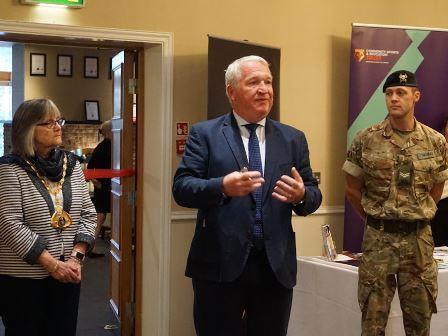
MP: That is an issue but there's something we can do about helping people get back into civvie street. Don't get me wrong, the MoD isn’t brilliant at this either. If you do three to nine years as I did, it is a case of 'here’s your box, here’s a month’s pay, now bugger off'.
I think they're getting better at that and depending on what part of the armed forces you're in, if you are a Class 1 driver, you are independently-minded because of the nature of what you have to do.
Alright, so you might have to put your arm around them a little bit more than you would traditionally. To me, we can always look at excuses. I'm going to be critical of the RHA and of the industry, because I think you need a good friend to kick you up the arse sometimes.
One of the things that we are going to do is create that pathway. And also a pathway for those who may have got themselves into trouble and perhaps have got a short-term prison sentence. I’m not talking about people convicted of armed robbery and things like that. But we want to rehabilitate them, and we want to have them come in.
And so one of the first people that I'm going to get him to help me with that is Simon Weston, a good friend of mine who is passionate about rehabilitation of veterans. If I can get someone like Simon who has such street cred to say, ‘why don't you get off your arse and recruit these boys?’ that would be great.
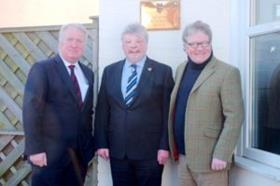
MT: I believe the transport industry's paid nearly £130m in Apprenticeship Levy funding over the past two years and it’s only got back about £10m. Do you support the RHA’s moves to get the Treasury to release some of that money back into the industry to fund driver training?
MP: So it has come back out through transport. Payment by results is what I think has to be the answer. Because you can't just give the money away, because this is tax that's been taken. I don't understand where that money is, because if you are a logistics organisation, and you're paying tax by levy and it's been spent somewhere, that's not where we need it to be.
This is all about trust, and I know the RHA is very concerned about the trust element and we need to ask those questions.
I am going to write to Chris [Grayling, transport secretary] so he is going to be very aware of those sort of questions and the things that we need to do. But at same time the industry can't sit back and say, ‘you nasty horrible government’. This has to be a joint venture. And if I can be the kind of catalyst that improves that opportunity, then great.
MT: Are the mechanisms in place to release that money? It's very difficult to fund driver training through apprenticeships.
MP: No, the mechanism is wrong and it's much too bureaucratic. And that is one of the reasons why there's so little money come back out of the system. So we're going to call for oral evidence and be like a select committee, and run our own inquiries. So I think we can make that bridge. At the moment the industry, they put up these banners ‘Class 1 drivers required, over £35,000’. You've got to do more than that.
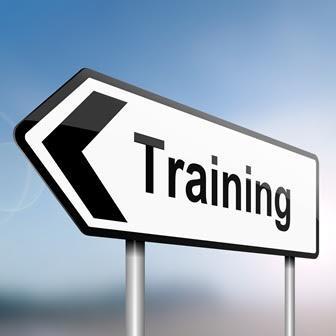
One thing that's been lost in the industry, certainly since I came out of the army, is driving is a career. It should be seen as a progressive career rather than, ‘we'll hold on to these guys no matter how good or bad a driver they are, and pay the guys who have just arrived the same as an experienced driver’.
I understand that if the economy drops off, you need fewer drivers. But you should look at the quality of driver you have.
When I used to come home on leave and do some agency work in Essex, I was delivering bulk newspapers from some of the print works there. That is a tough game and I was on £8 or £9 an hour.
The real difference, and this is where the industry has got to get this, is the short term-ism of the hourly paid driver rather than a career driver. Short-term employment or relying an agency drivers is sometimes a false economy. Far be it from me to tell them how to run their business but if you use an agency, you're paying more money for the driver. It has to be an industry-wide attempt to improve driver pay and the reputation of the industry.
I've got two lorry parks in my constituency - never full. All my lay-bys and bus stops are full, and in the morning they leave all their effluent to such extent we have now closed one lay-by on the A5 and we had to get a contaminated waste specialist in to clear out the ditches.
So it's a double-edged sword. I said to the RHA at the reception when I announced that we were going to form the APPG ‘I'm going to be on your backs as much as on the government's back, because this takes two to tango here’.
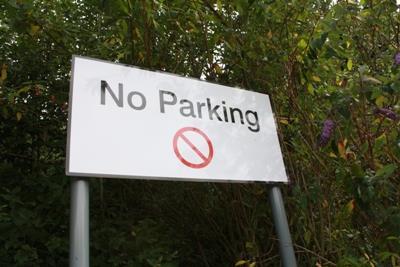
There was a time when I was a minister that I would have phoned Willie [William Stobart, former Eddie Stobart chairman] up and said, ‘one of your trucks is sitting in my bloody lay-by or in my bus stop’.
Willie would have sorted it. I don’t have that rapport with the industry again yet, but I will be asking MPs, when they have inappropriate lorry parking in their constituencies, to pass it to my secretariat and we will do something about it.
MT: Do you think that a lot of that is foreign drivers without a base in the UK doing their three cabotage trips in seven days?
MP: Yes, a good percentage of them are. But I'm afraid a lot of them are not, and a lot of that is to do with the way that we are doing deliveries. They get their time slots, so they get there the night before. I've got a massive logistics research base in my constituency.
I've got Amazon, I've got one of the largest Royal Mail sorting offices, I've got Next, ASOS, I've got them all. So I can see, very often, where the issues are. And interestingly, if it was just about the overseas drivers, we could understand it and handle it. But it's not a single issue and it’s not just overnight parking. If a driver has a slot down at my local Tesco they will sit in the bus stop just down the road. I've been out on patrol with the police and we've actually said to the drivers, ‘you can’t stay there. It’s dangerous’ and next night they're back there again. And the answer is, ‘I'm afraid that you're going to get hit. And the operator, he's going to be hit as well’. So the traffic commissioners have got a responsibility in this area as well.
MT: Would you like to see an end to cabotage when we leave the EU? Should we scrap it?

MP: I think we would scrap it. It depends on what the deal is. I have always said was there should not be a separate rule for foreign owners, operators or drivers than we have for our own people.
When I first took over as minister, the big problem was the belly tanks, because they were coming with full tanks. We brought the vignette [the HGV Road User Levy] in and I don't think the vignette works at all. If you say to any operator in this country that it's cheaper to operate your truck now than it was before we brought the vignette in, they'd laugh at it.
If you've got a 300 gallon belly tank sitting under there, you're earning a lot more money than our drivers are here. That's a fact and that has to be addressed.
Personally, that is one of the benefits, I hope, for the industry of Brexit. People have said to me, ‘there's going to be chaos at Harwich and Felixstowe and Gateway’. And I said, ‘why is it going to be chaos? 99% of those containers that are coming in now aren't coming from Europe. There's no customs there, it's all done electronically. What's the difference?’
Perhaps it's the European trucks. OK, so we create a situation which is exactly the same for them as it is for anybody else who brings it through. China appears to have no problems getting stuff into us.
MT: Because they're used to it. But the people who've been used to trading just with the EU haven't had to handle customs for 40 years.
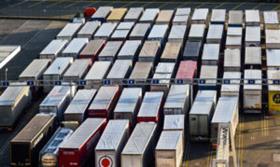
MP: OK but it's not War and Peace. We are a capitalist society and it will work. Is it going to be difficult? That's why, even as a Brexiteer, I'm happy to talk about a transitional period, but we are fully aligned with all European regulations anyhow, so in theory, it should just be done.
If there is no deal then there will have to be, under WTO [World Trade Organisation], an agreement. And the WTO, if you are in discussion for alignment, will sit back and let you get on and do it.
And after 40 years, we will be, basically, in alignment. The best thing would be a transition, but are the lights going to come on and the buses and trucks still run on the day after we leave? Of course they will. We're an amazing country. We are adaptable.
I think there'll have to have a conversation with the mayor of Calais and the CEO of the Calais port, who have categorically said, ‘bugger off, otherwise my town will be bankrupt’.
There are people over there as well as over here who are really worried. They need to do business with us and they also realise that if Calais don't do it, Dunkirk or Boulogne will. In my younger days, Boulogne was a bigger port than Calais. So the market will push very fast. But these are difficult times. I think everybody understands that.
MT: Was it at any point having the trial at Manston Airport with 89 trucks?
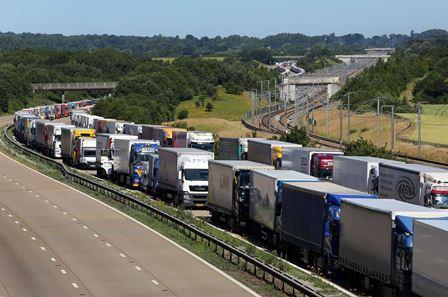
MP: If they had done nothing, they'd have got a kick in the pants. If they'd done it with 1,000 trucks, the industry would have said, ‘how much are you paying us for that?’ It would also have caused some degree of chaos. What would I have done? I probably would have argued that we needed to do it more like 500 trucks, but I can see exactly what the cost implications were and what everybody would have said about that.
MT: Will you be voting for the PM’s withdrawal agreement on Tuesday? Is any deal better than no deal?
MP: No. The backstop is the problem for me. I'm not a traditional rebellious sort of person but I fought for this country. I've fought in a particular province to keep it part of this country. So I cannot accept a backstop which has a separate identity indefinitely and I think for our sovereign nation, we should be able to leave the backstop when we want to.
You can't have a situation where Northern Ireland has a different relationship with Europe than the rest of the United Kingdom indefinitely.
I think she probably will address the backstop, not before the vote, but later on. She will probably lose the Brexit vote and following that they will have a vote of no confidence in her, which she'll win. She'll then say, ‘I’ll go back to our European friends,’ and then it'll be crunch. It's classic European diplomacy. It's lastminute.com.
MT: I still don't see how you can square the circle of the Good Friday Agreement, with the Republic in the EU and Northern Ireland in the UK, and having no border between them.
MP: All I can say to you is that the government have said, ‘we would not put a customs post on that border.’ I hate to you tell this, even through the Troubles, because I was there, we had 10,000 troops on that border and we couldn't make it a hard border.
There's a lot of concerns, and understandably so but the Unionists in Northern Ireland want to stay part of the United Kingdom. There's a majority of them. There might be a time in our lifetime when there might not be, but at the moment we have to respect their self-determination.
Do we need to compromise? Yes. Is there a compromise that those of us who voted Brexit can live with? I could live with a transition. I can't live with the backstop. Frankly, if she addresses the backstop, she wins. The DUP will come onboard, most of us will come onboard. I think she gets that. Wait and see.
MT: If and when we do come out, is there any other EU legislation you would like to scrap, such as the Working Time Directive, bearing in mind we have strict rules governing drivers’ hours?
MP: My gut feeling is no, but I'm open-minded enough on that to say let's talk about that. It's not just about driving, it's about tiredness. We have a ridiculously good record now. I understand the pressures on the industry, but I think that would be a retrograde step. I'm an ex-fireman and I saw too many people who had lost their lives or been maimed and maimed others because they were tired, in cars, on motorbikes or in lorries and coaches.
There are other anomalies within the regulations that I find quite weird. For instance, a coach can go faster than a lorry, and that causes mayhem on our motorways. It doesn't make any sense at all. So I do think, if you want the roads to flow, PSVs should be at the same speed as lorries.
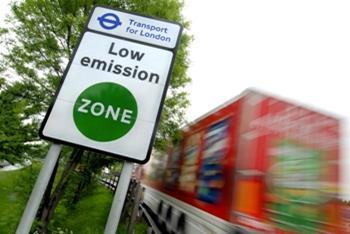
I think the other issue will be emissions situation in cities, because it's devolved, and we've seen what our wonderful mayor of London is doing at the moment.
There has to be some kind of level playing field going forward, because you'd be legal in Birmingham but illegal in Manchester. That can't be right and central government has to address that. I do think, when we talk about all the different myriad of issues that the industry has got, this is the one. Do I want air pollution to be addressed? Yes, but it has to be a level playing field, and at the moment it won't be.
MT: The other problem is the speed it's all happening, and the technology isn't there yet.
MP: There is an argument that if the legislation becomes harder and harder, the demand [for low emissions vehicles] will become greater, and then the price will come down. I don't necessarily think that's right. There's no indication even with the government help on electric cars that there is this sudden surge in demand.
But the difference between an electric car and an electric truck is you have a choice about where you drive your car. You don't have a choice where your delivery centre is, if it’s in the middle of Manchester or Liverpool. There are massive subsidies going into electric cars but I don't think battery electric is the answer.
I think hydrogen is fascinating. We keep talking about fuel cells but for HGV it must be a combustion engine. Whereas if you're relying on battery power, I just don't see how it works. I'm going to go to the [CV] show this year, and I hope that we're going to see lots of different ideas which are practical and possible coming down the line.
I'm going to encourage some of my colleagues to come and go for a drive in the lorries, and we're going to bring some tractor units into central London and get my colleagues out there. I also want them to go out on deliveries with truckers all over the country, so they can see what they're up against.
MT: What do you think of driverless trucks and robots in warehouses?
MP: Warehouses where they're not picking, somewhere like Amazon, are almost completely robotic now anyhow. That will come more and more.
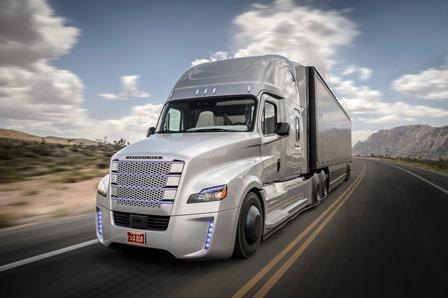
Whether we have the confidence to have driverless trucks on the motorways in my lifetime, I doubt. Maybe in designated lanes, that's quite possible, especially if you get coaches and lorries at the same speed.
The next type of managed motorway, which will almost certainly be tolled, will be where that goes. But we're a long way away from that.
MT: Would you say hand on heart, if you lost your seat tomorrow, would you ever go back to driving?
MP: Once I passed the medical... Interestingly enough I love the freedom of driving. Multi-drop I must admit would probably send me mad, but then I've got a mortgage to pay and I'd do it. You never know, there may be an election coming, I may lose, that's a possibility. I wouldn't rule out driving. I thoroughly enjoy it, especially with the new lorries these days.
MT: Finally, you said the APPG is going to be a place of action, not a talking shop. What three things would you like to achieve from this group in its first year?
MP: Without a doubt, address the issue of the driver shortages, because that's addressable. We're capable of doing that, that's not one of these impossible things that we're dreaming about. And second to improve the reputation of the haulage and logistics industry in the eyes of the general public. And third, to get government to really understand just how bloody important this industry is. I got some strange looks when I said I want it to be the road haulage and logistics group, but that strange look, even from some people in the industry, was symptomatic of where the problem might be.
Logistics as a whole is a cutthroat industry and I can't do anything about that. But the government can do more, we can do more as parliamentarians, and industry can do more as well.














